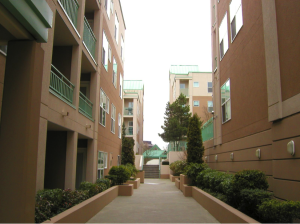Security deposits are included in landlord and tenant laws for California. Let’s take a look at how they apply to both parties.
What is a security deposit?
When a tenant agrees to rent a property from a landlord, then the landlord has the right to require money up front from the tenant. Under California laws, this money provides security for the landlord should the tenant break or violate the terms and conditions of the rental agreement. Therefore, it is known as a security deposit.
How much is a security deposit?
According to California’s landlord and tenant laws, the maximum amount that a landlord can charge for an unfurnished apartment is two times the amount of the rent. For a furnished apartment, the maximum amount that may be charged is three times the amount of the rent. Of course, the security deposit may be negotiable between the landlord and renter.
What is the deposit used for?
The security deposit can be used to cover a variety of costs incurred by the landlord, including:
- Unpaid rent when the lease is terminated
- Cleaning the rental unit when vacated by tenant, to return the unit to the same condition as when the tenant first moved in
- Damages caused by the tenant, not including normal wear and tear
- Replacement of owner’s personal property that is damaged beyond normal wear and tear, such as furniture or drapes.
What happens to the deposit once the tenant moves out?
Under the landlord-tenant laws of California, the security deposit must be returned to the renter within 21 days after the move-out date. The full amount may be returned, or a portion of the deposit can be returned as long as the landlord provides a letter of explanation and receipts for work completed (unless it is less than $126.00). If the landlord decides to keep all of the deposit for any of the reasons above, then they must send a letter of explanation even if they are not returning any of the money.
What if the renter does not receive the security deposit or a letter of explanation after 21 days?
The renter should write a letter to the landlord, requesting that the security deposit be returned. If the landlord does not respond or comply, then the renter should get a referral to a landlord-tenant lawyer from the Lawyer Referral and Information Service (LRIS).
Related Information
